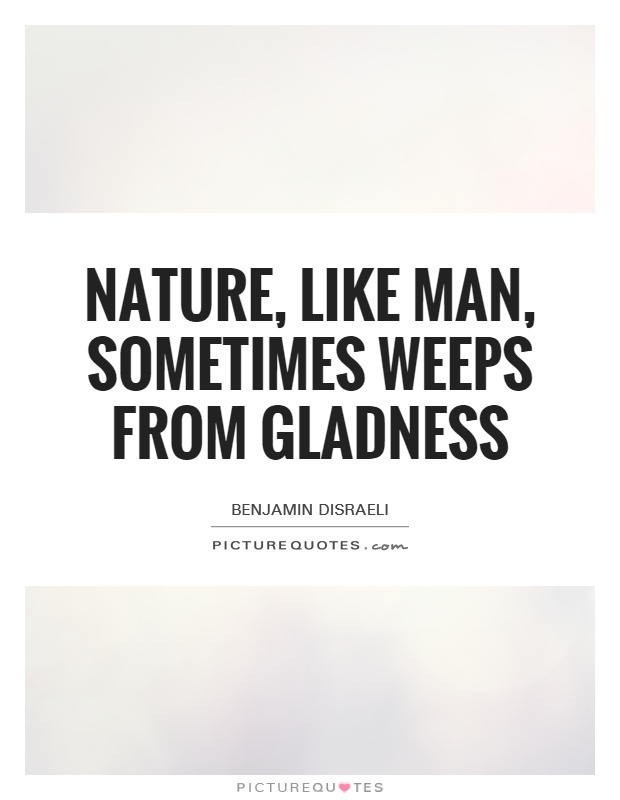Nature, like man, sometimes weeps from gladness

Nature, like man, sometimes weeps from gladness
Benjamin Disraeli, a prominent British statesman and novelist, once famously said, "Nature, like man, sometimes weeps from gladness." This profound statement reflects Disraeli's deep appreciation for the beauty and power of nature, as well as his understanding of the complex emotions that it can evoke in both humans and the natural world.Disraeli was known for his keen observations of human nature and his ability to capture the essence of human emotions in his writing. In this quote, he draws a parallel between the emotions of man and the emotions of nature, suggesting that just as humans can experience overwhelming joy that brings tears to their eyes, so too can nature be moved to tears of gladness.
One interpretation of this quote is that nature, like humans, can be deeply affected by moments of beauty, wonder, and joy. When we witness a breathtaking sunset, a majestic mountain range, or a vibrant field of flowers, we may feel a sense of awe and gratitude that moves us to tears. In the same way, nature itself can be moved by the beauty and harmony of the world around it, expressing its joy through tears of gladness.
Another interpretation of Disraeli's quote is that nature, like humans, can experience a range of emotions beyond just joy and beauty. Just as humans can feel sadness, grief, and despair, so too can nature be affected by the destructive forces of man, such as pollution, deforestation, and climate change. In this sense, nature may weep not only from gladness but also from sorrow, as it bears witness to the harm that humans have inflicted upon the natural world.
Overall, Disraeli's quote serves as a reminder of the deep connection between humans and nature, and the profound impact that both can have on each other's emotions. It encourages us to appreciate the beauty and wonder of the natural world, while also recognizing our responsibility to protect and preserve it for future generations.












 Friendship Quotes
Friendship Quotes Love Quotes
Love Quotes Life Quotes
Life Quotes Funny Quotes
Funny Quotes Motivational Quotes
Motivational Quotes Inspirational Quotes
Inspirational Quotes